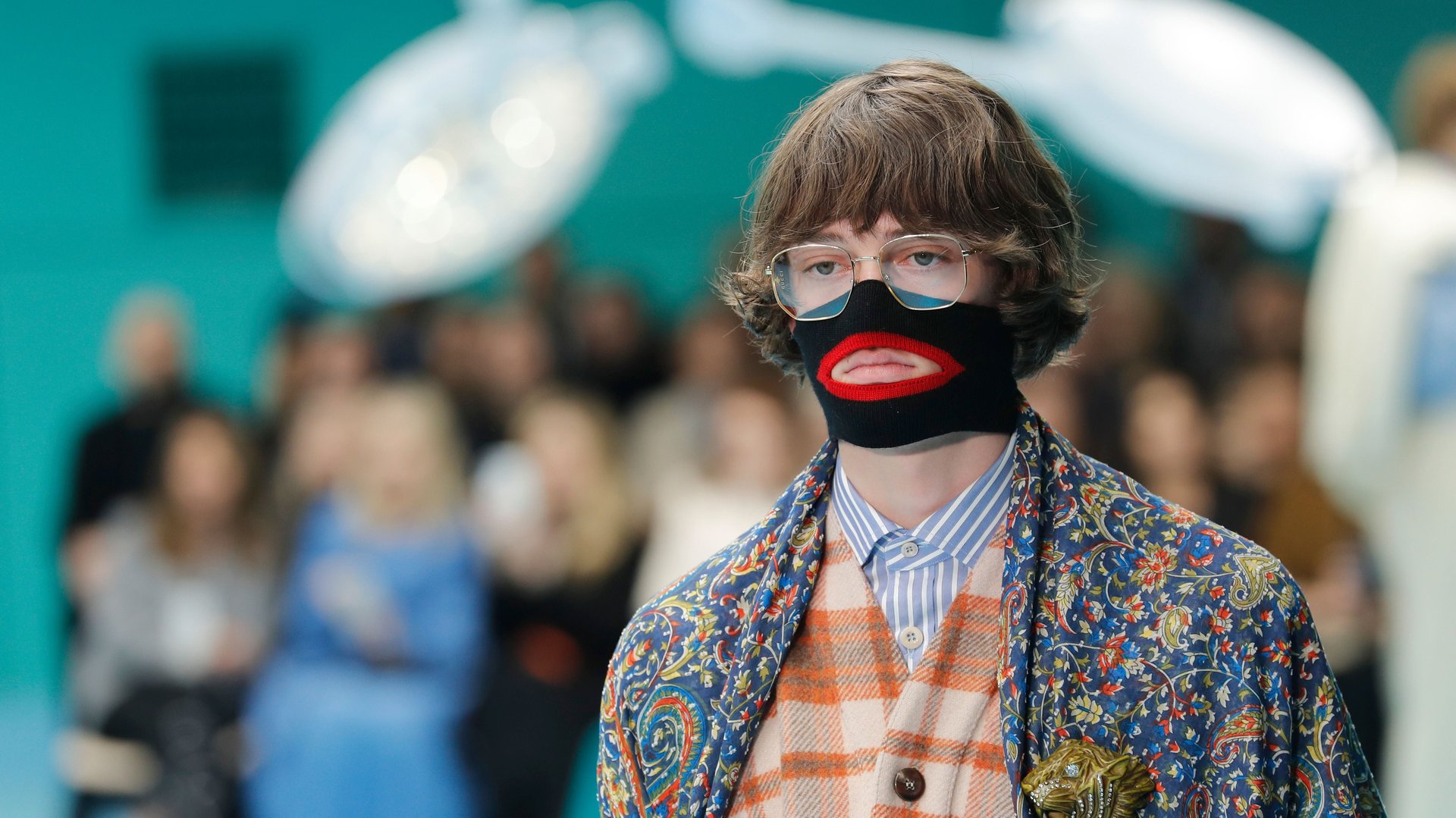This week in apologies: Gucci’s blackface jumper and Adidas’s Black History Month shoe
Gucci is apologizing for a sweater with an attached face mask that blatantly recalls blackface. It’s yet another misstep by a fashion brand that echoes racist tropes.


Gucci is apologizing for a sweater with an attached face mask that blatantly recalls blackface. It’s yet another misstep by a fashion brand that echoes racist tropes.
The sweater was part of the label’s fall collection, which riffed on the ways people construct their identities, and used an operating theater as the set of its runway show. Along with face coverings such as patterned balaclavas, it included a couple of knitted black masks with mouth holes framed by red lips. On the runway they didn’t cause a stir, but Gucci also sold a version attached to a black turtleneck sweater, creating a look that resembled the racist Sambo figure, which has long served as a tool to dehumanize black people.
As more people noticed and outrage spread, Gucci issued an apology, and pulled the sweater from its stores and website.
Adidas had to issue its own apology during Black History Month for a sneaker in its collection that was “celebrating black culture”: an all-white “uncaged” version of its popular Ultraboost model. Adidas has put out numerous “uncaged” sneakers before; the name refers to the shoe’s design omitting a plastic overlay. But that choice, along with the color, for a collection “celebrating black culture,” provoked a good deal of criticism on social media.
Adidas pulled the sneaker and put out a statement:
Toward the latter stages of the design process, we added a running shoe to the collection that we later felt did not reflect the spirit or philosophy of how Adidas believes we should recognize and honor Black History Month. After careful consideration, we have decided to withdraw the product from the collection.
These sorts of blunders are becoming a regular occurrence. In December, Prada apologized and withdrew one of its expensive “Pradamalia” charms from sale over criticism that it resembled the Sambo figure. The month before, Dolce & Gabbana got into trouble over a tone-deaf ad that played on stereotypes about Chinese people. Earlier in 2018, H&M encountered a major backlash over a child’s hoodie that echoed a racist trope leveled against black people. In a somewhat different case, Nike is currently under pressure to recall a popular sneaker with text on the sole that people have complained looks like the Arabic for “Allah.”
Critics have pointed to a lack of diversity and inclusivity in decision-making positions within companies as part of the reason these gaffes keep occurring. Brands are often rooted in one particular country and culture, which may be reflected in their hiring, but they’re also asking a global, diverse audience to buy their products. Those consumers are more empowered than ever, and brands are learning fast that they need to keep all of them in mind—from the way they design products right through the way they market them. If they don’t, the mistakes can be costly.